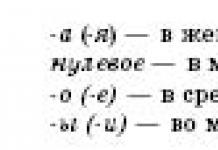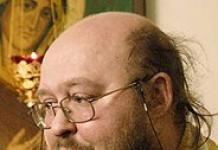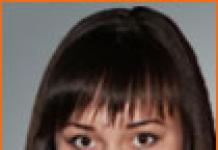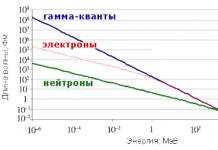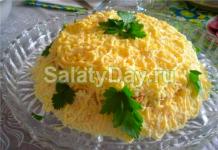Rossotrudnichestvo has announced an open enrollment of foreign citizens for free education at Russian universities. The head of the department, Lyubov Glebova, spoke in detail about who, why and why can go to Russia for a diploma of higher education.
Lyubov Nikolaevna, how many foreigners come to Russia every year to receive free higher education?
— For the last three years, the Russian Federation has annually invited 15 thousand foreign citizens to study at our universities completely free of charge. More than 400 Russian universities are involved in this process.
In 2016, we made enrollment completely open for the first time. Having analyzed how this is organized among colleagues from other countries, this year we launched a procedure for open submission of applications in electronic form. Nothing has changed globally in the admission procedure, but it has become much simpler and more transparent (single data entry window, quick selection procedure). The information portal allows you to remove a large number of intermediaries who previously “circled” around this process.
Citizens of 198 countries can send their applications to study at Russian universities in a variety of specialties (from medical to technical, including nuclear physics). A separate direction is allocated for Russian specialists, linguists and philologists. Everything related to the Russian language is now in great demand abroad.
What does a foreign citizen need to do to declare himself as an applicant for the Russian state quota?
— Register on the portal www.russia.study. The procedure takes about 20 minutes and is performed in two elementary steps: the foreign citizen confirms his identity and then sets up an email. Confirmation comes almost instantly. Mail is needed in order to maintain quick and reliable communication with a potential applicant in the future, but whether he will respond promptly to it depends on his own interest in further education.
After verification, the candidate has access to a questionnaire in which he enters his data, information about education and personal achievements, indicates the desired direction of study, and also writes a letter of motivation. The questionnaire is included in the general list of questionnaires for the country. Then the operator of a particular country (each country has its own operator) pre-selects candidates.
Could it happen that some not particularly gifted foreign citizens will take the places of promising Russian applicants? Is there any kind of competitive selection?
— In most countries of the world there are representative offices of Rossotrudnichestvo - Russian centers of science and culture, whose employees, based on several parameters (quality certificate, participation in the Olympics and other merits of the candidate), provide a preliminary assessment of applicants’ profiles. The most successful and talented young people are invited to an in-person or remote interview. In the case of Syria, for example, only a remote selection format is now possible. Meanwhile, we are certainly waiting for students from Syria; we will be glad to see them at Russian universities.
The final selection is carried out by a commission that includes representatives of Russian centers of science and culture, embassies, local ministries of education and public organizations. We are currently negotiating with universities to have their employees also be members of the commission.
This is a pilot year and the selection procedure will be an interview or test. However, next year we plan to move to a full-fledged form of assessment, based on a system of olympiads and tests. A separate rating will be generated for each country.
Another element of the selection will be the Olympiads held by Russian universities in foreign countries. Rossotrudnichestvo is currently working to make them adequate and ranked relative to each other.
- What should applicants who are not selected do?
— Even if some foreign citizen is not offered a quota within the recruitment of 15 thousand applicants, he will be offered to study at Russian universities under a contract. Taking into account the fact that the cost of training in many of our universities is relatively low (in a significant part of universities it is 1000-1500 euros per year), many will be interested in this format.
At what stage do universities themselves come into play? How does a recommended candidate get into a specific university?
— After a foreign citizen has been selected for study within the quota, he chooses six universities in which he would like to study, and ranks them himself. Then an interesting mechanism is activated: each university opens its own “electronic account” and makes a choice in favor of one or another applicant. If he did not get into the first preferred university, his data is transferred to the second... Thus, the applicant can reach the sixth university.
If none of the six universities has chosen it, the Ministry of Education of the Russian Federation will offer an alternative option for studying at some other university. Believe me, no one will be forgotten in this chain.
How do you assess whether Russia continues to be recognized in the world as a country with a strong higher education system? What motives do people have who go to Russia for higher education?
— Firstly, Russia provides high-quality education in engineering, natural sciences, mathematics, philology and Russian studies. A separate motivational layer is occupied by medical education, which is extremely popular abroad. The situation is similar with cultural studies: Russian music, theater, and cinema still arouse great interest among foreigners.
Despite the fact that there have been difficult times in Russian education, it continues to be valued in the world as fundamental, rooted and interdisciplinary.
Secondly, studying and living in Russia is cheaper than, for example, in Europe.
Finally, Russia is a leading country for a number of countries. Many people who currently hold leadership positions in different countries themselves once studied in Russia. Now that their children have reached the age of applicants, they look with great interest towards Russian education, knowing full well that studying in the Russian Federation gives a broad outlook, useful contacts and the right guidelines. This applies not only to the CIS countries, but also to developing countries in Asia and Africa, individual European countries, as well as Latin American countries.
- What benefits and benefit, in your opinion, will this project bring to the Russian side?
“First of all, it allows universities and Russia to secure their future and make the right investments. High-quality foreign students who have received a Russian education, returning to their country, remain loyal to the Russian Federation. If they immerse themselves in science, they build close relationships with Russian educational and scientific organizations. The most motivated and sought-after students remain in Russia, continuing to study and work here. In essence, we are attracting to Russia the personnel needed by our economy and education system.
In addition, quotas for free education at Russian universities apply not only to bachelors, but also to masters and graduate students, and this is a direct indicator of academic mobility, an element of student exchange. Universities are establishing contacts at the international level.
If we talk about foreign students who go to study not under a quota, but under a contract, then this is quite a significant income for universities.
To study in Russia, you need the Russian language - it is far from the easiest language in the world. Will language support be provided to foreign students?
— In the Russian Federation, many universities have preparatory faculties. Some foreign citizens who do not speak Russian at all (and about 4 thousand of them are recruited annually) spend a whole year doing language training there. However, each such student spends up to 100 thousand rubles a year. The state is losing money, people are losing time.
In this regard, in the future, Rossotrudnichestvo plans to create, together with Russian universities, “remote” preparatory faculties in different countries of the world, and open Russian language teaching centers and testing centers there.
- Are there many people who already want to take advantage of the Russian offer of free study at our universities?
— Now there is a high activity of those wishing to become Russian students: people call, ask questions on social networks, register on the portal. So far, citizens of the CIS countries are showing the greatest interest, which is quite expected, since information about the recruitment of students quickly spread in the Russian-speaking environment.
Recruitment of foreign citizens for free education in Russian universities is an annual and long-term project. Understanding that it is an effective foreign policy instrument for the state, I would like to increase the number of quotas in the future.
To get started, we recommend that you read the presentation "Unknown benefits. Simplified procedure for employing foreign students" dedicated to legislation regulating the legal status of foreign students on the territory of the Russian Federation. Author -Kirill Aksenov, lawyer, expert in the field of migration and labor relations with foreign citizens, you can find his contacts inside . Unknown benefits.pptx
Also check out the guide from HSE student Maxim Parshin, with photos and comments: How to get a work permit as an international student without turning gray.
In accordance with the law, foreign students studying at Russian universities are exempt from obtaining a work permit for them if they
a) work during the holidays
b) work in their free time from studies at the universities in which they study.
Students from member states of the Eurasian Economic Union (Armenia, Belarus, Kazakhstan, Kyrgyzstan) do not need to obtain a work permit.
In all other cases*, foreign students studying full-time at a Russian university can independently apply to the Federal Migration Service (FMS) to obtain a work permit. To do this, you must provide the following documents:
Statement Statement.xls
Passport
Notarized copy of passport
Migration card, registration
Copy of migration card, copy of registration
Employment contract (unsigned)**
State duty (can be filled out on the website)***
Health Certificate (General)
Certificate of absence of dangerous diseases (HIV, etc.)
Photo
Certificate from the educational section about the training of a foreign citizen in a vocational education program Certificate from the university
*Prohibition for foreigners-chief accountants
Among other things, an important amendment was also made to the law on the legal status of foreign citizens, prohibiting foreigners from holding the position of chief accountant or other position related to the accounting of a Russian company. Only foreigners who have a residence permit or temporary residence permit can keep the company's books. We ask you to take this information into account in your work.
**The employer is obliged to notify the territorial body of the migration service and the employment service in the relevant constituent entity of the Russian Federation about the conclusion and termination of employment contracts with foreign students, as well as about providing them with unpaid benefits lasting more than 1 calendar month during the year (clause 18 of Article 13.4 of the Law) . At the same time, a foreign student does not have the right to carry out labor activities outside the boundaries of the constituent entity of the Russian Federation on the territory of which he is studying (clause 20 of Article 13.4 of the Law).
***Region – Moscow, Locality – Basmanny Municipal District, Type of state duty – State duty for issuing a work permit to a foreign citizen or stateless person
Documents should be submitted to:
|
Department head Angelica Igor Nikolaevich Reception of citizens on labor migration issues |
Business hours: Monday From 09.00 to 14:00 hours. Thursday From 14:00 to 16:00 hours. |
Cab. 085 Moscow, pos. Voronovskoe, Varshavskoe highway, 64th km, building 1, building 47, MMC (Sakharovo) |
After contacting the Federal Migration Service, a foreign student must receive a work permit for up to one year within ten working days.
Accordingly, if a foreign worker studies in professional educational organizations and educational organizations of higher education, and has a student visa, he has the right to work in his free time from study, or during the holidays, and does not need to obtain a work permit. The list of institutions where students can work in their free time is limited. At the same time, the list of organizations where students have the right to work during the holidays is not limited (subparagraph 6 of paragraph 4 of Article 13 of the Federal Law “On the Legal Status of Foreign Citizens in the Russian Federation”).
What are the conditions for the employment of foreign students at the university?
Employment of foreign students at the Higher School of Economics is carried out in the general manner, without restrictions, in accordance with the labor legislation of the Russian Federation, as well as citizens of the Russian Federation, if the employee complies with the above-mentioned migration requirements. To obtain up-to-date information on available vacancies, you can contact the Personnel Department.
If a foreign student works in a structural unit of the university, then he does not need to obtain a work permit. Likewise, the University does not need to obtain permission to attract and use foreign workers.
When applying for a job, a foreign student must present the following documents to the employer:
Passport or other identification document;
Work book;
Insurance certificate of compulsory pension insurance;
A voluntary medical insurance agreement (policy) valid on the territory of the Russian Federation (except for cases where the employer enters into an agreement with a medical organization on the provision of paid medical services to a foreign employee);
Conclusion on passing a preliminary medical examination (when admitting students under the age of 18, as well as in other cases provided for by the legislation of the Russian Federation);
Document on education and/or qualifications or special knowledge (when applying for a job that requires special knowledge or special training);
A certificate confirming the presence (absence) of a criminal record and/or the fact of criminal prosecution or the termination of criminal prosecution on rehabilitative grounds, issued in the manner and in the prescribed form (when a student enters a job related to activities for which persons who have or have had criminal record, are or have been subject to criminal prosecution).
If an employment contract is concluded for the first time, then the work book and insurance certificate of compulsory pension insurance are drawn up by the employer.
As for military registration documents, as a general rule, a foreigner applying for a job does not present military registration documents to the employer, except in cases established by federal laws or international treaties of the Russian Federation, decrees of the President of the Russian Federation, decrees of the Government of the Russian Federation (Part 3 of Article 327.3 of the Labor Code RF). We were unable to find relevant regulations and international treaties. Therefore, there is no need to require military registration documents from foreign students applying for a job.
What are the employment conditions for foreign students who are students of preparatory departments of the university?
Students of preparatory departments can be considered students of an educational organization of higher education. Therefore, they are subject to a simplified procedure for employment at the University, that is, without obtaining permits.
Rationale:
According to Article 2 of the Federal Law of December 29, 2012 No. 273-FZ “On Education in the Russian Federation” (hereinafter referred to as the Law), a student is an individual who is mastering an educational program. Students, depending on the level of the educational program being mastered, the form of study, and the mode of stay in the educational organization, include, among other things, listeners - persons enrolled in training at the preparatory departments of educational organizations of higher education (Article 33 of the Law).
Based on the above, a person studying at the preparatory department of an educational organization of higher education can also be considered a student. .
What are the conditions for internship for foreign students?
To complete an internship, foreign students do not need to obtain a work permit, except for the cases provided for in paragraph 15 of the Regulations on the internship of students mastering basic professional educational programs of higher education (approved by Order of the Ministry of Education and Science of Russia dated November 27, 2015 No. 1383).
Letter from the Ministry of Internal Affairs
INFORMATION FOR EMPLOYERS
Reception of notifications about the conclusion and termination of employment contracts or civil contracts for the performance of work (provision of services) with foreign citizens studying full-time in the Russian Federation
In accordance with Art. 13.4 of the Federal Law of July 25, 2002 No. 115-FZ “On the legal status of foreign citizens in the Russian Federation” employers or customers of work (services) who attract and employ foreign citizens studying full-time in the Russian Federation in a professional educational organization for work activities or an educational organization of higher education in the main professional educational program that has state accreditation, are obliged to notify the territorial body of the federal executive body in the field of migration and the Department of Labor and Social Protection of the city of Moscow about the conclusion and termination of employment contracts or civil law contracts within three working days to perform work (provide services) with these foreign citizens, as well as to grant them unpaid leave for more than one calendar month during the year.
Foreign labor
Attention to employers planning to attract foreign labor!
Not only Russian applicants seek to study abroad. Today, a considerable number of foreign students study in Russia. Most of them come from the countries of the former USSR, but students from Europe and the United States also study at some universities. To obtain an education, a foreign applicant needs a study visa to Russia.
Validity period of the visa document
Most often, the visa document is valid for no more than 90 days. But the student can always ask for an extension if it is really necessary. In this case, he undertakes to prepare in advance all the necessary documents confirming the need for an extension.
According to existing Russian legislation, the validity of a visa document can be extended for the duration of the training contract.
Today, the validity period of a training contract is no more than 12 months. For questions regarding the extension of a visa document, the student must contact the Ministry of Internal Affairs at the place of registration.
Features of the visa document
A student visa has the status of an entry document. A foreigner can receive it if the purpose of his arrival in the Russian Federation is to obtain higher education at one of the Russian universities.
The purpose of the trip must be specifically stated. The visa also indicates the name of the university that invited the student.
Features of the registration procedure
A foreign person interested in obtaining a study visa document undertakes to go through the following steps:
- Select a university.
- Collect and submit documents to the selected university.
- Submit an application to the Ministry of Education of your country.
- Sign an agreement with the university.
After a foreign applicant has decided on the choice of university and submitted all the necessary documents, he must wait for an invitation from the Russian Ministry of Foreign Affairs. The Ministry of Foreign Affairs receives a letter of invitation from the university that has received and reviewed the documents of the foreign applicant.
Preparation of an invitation letter generally takes 45 days. The invitation document is valid for 90 days.
Upon arrival in Russia, a foreign person undertakes to sign a training contract. To register, he will need to hand over his passport with the visa attached to it. You must register within three days of your arrival in Russia. Upon completion of the registration procedure, the foreigner can receive his passport back.
What documents are needed
Foreigners interested in obtaining a student visa must collect the following documents:
- school certificate;
- international passport;
- invitation from the university;
- application form (filled out in the prescribed form);
- three high-quality photographs;
- health certificate;
- HIV test;
- bank account to pay for training (relevant for those coming to Russia for the first time).
Applications for admission are considered from 01.05 to 15.10. school year. Those applicants who do not delay submitting their application have a high chance of becoming a student at the chosen university.
Note to state employees and contract employees
Today, training for foreigners is carried out on both a commercial and budgetary basis.
Children who wish to receive education on a commercial basis, in addition to basic documents, undertake to provide complete information about themselves. You may also need other documents, about which it is advisable to inquire in advance from the inviting party.
If a student is unable to pay for tuition, then he must submit a corresponding application to the Ministry of Education of his state. The student can also send a request to the international cooperation center.
If the selected university agrees to train a foreigner on a budgetary basis, the student receives a letter of invitation. This letter will be the basis for obtaining a student visa.
How is reception carried out?
Russian universities admit foreigners only after they pass entrance examinations. The test program depends on how long the foreign student plans to study in Russia.

The head of Rossotrudnichestvo Lyubov Glebova told RIA Novosti correspondent Yulia Osipova about how Russia is going to increase the number of foreign students.
Lyubov Nikolaevna, how many foreigners come to Russia every year to receive free higher education?
— For the last three years, the Russian Federation has annually invited 15 thousand foreign citizens to study at our universities completely free of charge. More than 400 Russian universities are involved in this process.

In 2016, we made enrollment completely open for the first time. Having analyzed how this is organized among colleagues from other countries, this year we launched a procedure for open submission of applications in electronic form. Nothing has changed globally in the admission procedure, but it has become much simpler and more transparent (single data entry window, quick selection procedure). The information portal allows you to remove a large number of intermediaries who previously “circled” around this process.
Citizens of 198 countries can send their applications to study at Russian universities in a variety of specialties (from medical to technical, including nuclear physics). A separate direction is allocated for Russian specialists, linguists and philologists. Everything related to the Russian language is now in great demand abroad.
What does a foreign citizen need to do to declare himself as an applicant for the Russian state quota?

— Register on the portal www.russia.study. The procedure takes about 20 minutes and is performed in two elementary steps: the foreign citizen confirms his identity and then sets up an email. Confirmation comes almost instantly. Mail is needed in order to maintain quick and reliable communication with a potential applicant in the future, but whether he will respond promptly to it depends on his own interest in further education.
After verification, the candidate has access to a questionnaire in which he enters his data, information about education and personal achievements, indicates the desired direction of study, and also writes a letter of motivation. The questionnaire is included in the general list of questionnaires for the country. Then the operator of a particular country (each country has its own operator) pre-selects candidates.
Could it happen that some not particularly gifted foreign citizens will take the places of quite promising Russian applicants? Is there any kind of competitive selection?
— In most countries of the world there are representative offices of Rossotrudnichestvo — Russian centers of science and culture, whose representatives, based on several parameters (qualitative certificate, participation in the Olympics and other merits of the candidate), provide a preliminary assessment of applicants’ profiles. The most successful and talented young people are invited to an in-person or remote interview. In the case of Syria, for example, only a remote selection format is now possible. Meanwhile, we are certainly waiting for students from Syria; we will be glad to see them at Russian universities.
The final selection is carried out by a commission that includes representatives of Russian centers of science and culture, embassies, local ministries of education and public organizations. We are currently negotiating with universities to have their employees also be members of the commission.
This is a pilot year and the selection procedure will be an interview or test. However, next year we plan to move to a full-fledged form of assessment, based on a system of olympiads and tests. A separate rating will be generated for each country. Another element of the selection will be the Olympiads held by Russian universities in foreign countries. Rossotrudnichestvo is currently working to make them adequate and ranked relative to each other.
- What should applicants who are not selected do?
— Even if some foreign citizen is not offered a quota within the recruitment of 15 thousand applicants, he will be offered to study at Russian universities under a contract. Taking into account the fact that the cost of training in many of our universities is relatively low (in a significant part of universities it is 1000-1500 euros per year), many will be interested in this format.
At what stage do universities themselves come into play? How does a recommended candidate get into a specific university?
— After a foreign citizen has been selected to study within the quota, he chooses 6 universities in which he would like to study, and ranks them himself. Then an interesting mechanism is activated: each university opens its own “electronic account” and makes a choice in favor of one or another applicant. If he did not get into the first preferred university, his data is transferred to the second... Thus, the applicant can reach the sixth university. If none of the six universities chose him, the Ministry of Education and Science of the Russian Federation offers an alternative option for studying at some other university. Believe me, no one will be forgotten in this chain.
Do you think Russia continues to be recognized in the world as a country with a strong higher education system? What motives do people have who go to Russia for higher education?
— Firstly, Russia provides high-quality education in engineering, natural sciences, mathematics, philology and Russian studies. A separate motivational layer is occupied by medical education, which is extremely popular abroad. The situation is similar with cultural studies: Russian music, theater, and cinema still arouse great interest among foreigners. And, despite the fact that there have been difficult times in Russian education, it continues to be valued in the world as fundamental, rooted and interdisciplinary.
Secondly, studying and living in Russia is cheaper than, for example, in Europe. Thirdly, Russia is a leading country for a number of countries. Many people who currently hold leadership positions in different countries themselves once studied in Russia. Now that their children have reached the age of applicants, they look with great interest towards Russian education, knowing full well that studying in the Russian Federation gives a broad outlook, useful contacts and the right guidelines. This applies not only to the CIS countries, but also to developing countries in Asia and Africa, individual European countries, as well as Latin American countries.
- What benefits and benefit, in your opinion, will this project bring to the Russian side?
“First of all, it allows universities and Russia to secure their future and make the right investments. High-quality foreign students who have received a Russian education, returning to their country, remain loyal to the Russian Federation. If they immerse themselves in science, they build close relationships with Russian educational and scientific organizations. The most motivated and sought-after students remain in Russia, continuing to study and work here. In essence, we are attracting to Russia the personnel needed by our economy and education system.
In addition, quotas for free education at Russian universities apply not only to bachelors, but also to masters and graduate students, and this is a direct indicator of academic mobility, an element of student exchange. Universities are establishing contacts at the international level. If we talk about foreign students who go to study not under a quota, but under a contract, then this is quite a significant income for universities.
To study in Russia, you need the Russian language - it is far from the easiest language in the world. Will language support be provided to foreign students?
— In the Russian Federation, many universities have preparatory faculties. Some foreign citizens who do not speak Russian at all (and about 4 thousand of them are recruited annually) spend a whole year doing language training there. However, each such student spends up to 100 thousand rubles a year. The state is losing money, people are losing time.
In this regard, in the future, Rossotrudnichestvo plans to create, together with Russian universities, “remote” preparatory faculties in different countries of the world, and open Russian language teaching centers and testing centers there.
- Are there many people who want to take advantage of the Russian offer of free study at our universities?
— Now there is a high activity of those wishing to become Russian students: people call, ask questions on social networks, register on the portal. So far, citizens of the CIS countries are showing the greatest interest, which is quite expected, since information about the recruitment of students quickly spread in the Russian-speaking environment.
Recruitment of foreign citizens for free education in Russian universities is an annual and long-term project. Understanding that it is an effective foreign policy instrument for the state, I would like to increase the number of quotas in the future.
Foreign students in Russian universities
A.L. Arefiev
(Report at the 3rd World Forum of Foreign Graduates of Soviet and Russian Universities (Moscow, November 2012)
Over the entire period of the existence of the Soviet Union and the next 20 years of post-Soviet development of the Russian Federation in Soviet and Russian civilian and military universities and other educational institutions, including secondary specialized ones, in various training courses, retraining, advanced training, educational and industrial internships, etc. d. A total of more than one million people were trained. The peak number of foreign citizens studying was reached in 1989/1990, when up to 180 thousand foreign citizens underwent various forms of training in the USSR (civil and military, in the system of higher and secondary specialized education, internships and advanced training courses, etc.) of which about 70% are in educational institutions of the RSFSR). In the early 1990s, there was a decline in the training of foreigners in Russia, which began to gradually be overcome in the 2000s. Trends in the number of foreign students studying full-time at Russian universities (the main form of training specialists for foreign countries in the domestic education system) over the past decades are clearly reflected in Figure 1.
Figure 1. Number of foreign full-time students in universities of the RSFSR and the Russian Federation in 1990/1991 - 2010/20110.
The transition from a centralized system of training foreign citizens in Soviet times to greater freedom and a market (contract) form of training for foreign countries after the collapse of the USSR led to a sharp increase in the number of domestic higher education institutions engaged in international education. Suffice it to say that if before 1990 foreigners studied at 250 universities of the RSFSR, then by 2011 their number increased more than 3 times (see Fig. 2).

Figure 2. Number of Russian universities that taught full-time foreign students 1990/1991 -2010/2011.
Foreign citizens studied in the 2010/1011 academic year in 787 public, including 562 state and 174 non-state universities, which accounted for almost 3/4 of the total number of all Russian universities (1115).
The leaders in full-time education for foreign citizens are RUDN University and Moscow State University. M.V. Lomonosov (see Table 1). These universities have been leading in training personnel for foreign countries since Soviet times: in the 1989/1990 academic year at the Peoples' Friendship University. Patrice Lumumba had 4.5 thousand foreign students, interns, and graduate students; at Moscow State University there were 3.2 thousand.
Table 1. Russian universities with the largest number of foreign full-time students in 2008/2009 -2010/2011
|
Name of universities |
years |
||
|
2008/2009 |
2009/2010 |
2010/2011 |
|
|
1.Peoples' Friendship University of Russia |
|||
|
2.MSU named after. M.V. Lomonosov |
|||
|
3.St. Petersburg State University |
|||
|
4.St. Petersburg State Polytechnic University |
|||
|
5.Moscow Medical Academy named after. THEM. Sechenov |
|||
|
6.State Institute of Russian Language named after. A.S. Pushkin |
|||
|
8. Smolensk State Medical Academy |
|||
|
9.Russian State Medical University |
|||
|
10.Moscow Aviation Institute (Technical University) |
|||
The Russian Federation annually allocates 10,000 state scholarships (places for free education). Moreover, almost half of the scholarships go to people from the former Soviet republics, and the other half is intended for representatives of non-CIS countries (see Fig. 3).

Figure 3. Russian state scholarships for students from various countries, allocated in the 2011/2012 academic year, %
During the Soviet period, the largest share of those receiving higher education in the USSR came from the socialist countries of Eastern Europe (primarily the GDR, Bulgaria, Poland, Czechoslovakia) and Asia (primarily Vietnam, Mongolia, China and Afghanistan), as well as Cuba (see Fig. 4). Almost all of them studied full-time.

Figure 4. The share of foreign citizens who received education at Soviet universities in the 1950/1951-1985/1986 academic years, by main groups of countries and regions of the world, %
In the last year of the USSR’s existence, the leaders in the number of full-time students at Soviet universities were Mongolia, Vietnam, Afghanistan, Cuba and Bulgaria (see Table 2).
Table 2. Leading countries by the number of their students studying full-time at Soviet universities
After 20 years, the picture in this regard has changed significantly: the largest share in the foreign student population of full-time education is from immigrants from the former Soviet republics (see Fig. 5).

Figure 5. From which countries did students study in Russia in 2010/2011, %
In terms of the number of students, interns, graduate students, doctoral students, etc. Full-time education in the 2010/2011 academic year was led by Kazakhstan (16,616 people), China (16,486 people), Turkmenistan (5,297 people), Ukraine (4,919 people), India (4,515 people), Belarus (4,229 people). ), Azerbaijan (4166 people), Vietnam (3628 people), Tajikistan (3556 people), (Uzbekistan (3466 people). Previously (in 2005/2006-2009/2010) the countries with the largest number of their representatives in Full-time departments of Russian universities invariably included the People's Republic of China, Kazakhstan and India.
The overwhelming majority of foreign students wishing to receive a full-time education in Russia, namely 96.1%, prefer to use the services of state universities, including universities of the Ministry of Education and Science accounting for almost 2/3 of the total contingent of foreign full-time students.
The total number of foreign countries whose representatives are studying at Russian universities today is quite impressive - 173 (at the end of the 1980s, representatives of 150 countries studied in the USSR). The widest national composition of students at RUDN University is 146 countries. In second place is Moscow State University. M.V. Lomonosov, where representatives of just over 80 countries study.
If during the Soviet period more than half of foreign students studied engineering and technical specialties in the USSR (see Fig. 6), then in the 2010/2011 academic year their total share was about 20% and almost equal to the share of those studying at medical and economic faculties (see Fig. 6). Fig. 6 and Fig. 7). It can also be noted that compared to the 2009/2010 academic year, the number of students studying engineering and technical specialties increased by three thousand people, with construction and architecture being the most popular (4.1 thousand people studied or 3.5% of the total foreign student population ) and geology and mineral exploration (2.7 thousand people or 2.3%).

Figure 6. Specialties studied by foreign students in Russia in the 1989/1990 academic year, %

Figure 7. Specialties studied by foreign students in Russia in the 2010/2011 academic year, %
The number of people studying Russian on short-term courses in the 2010/2011 academic year compared to 2009/2010 increased by more than 1.5 times (from 7.6 to 12.7 thousand people), but the number of people studying Russian as a specialty under long-term programs over the past year it has decreased by half (from 6.5 to 3.5 thousand people). It should also be pointed out that in recent years there has been a tendency towards a decrease in the level of knowledge of the Russian language among applicants arriving in Russia, not only from abroad, but also from neighboring countries. Increasingly, representatives of the CIS, if they are not compatriots who grew up in Russian-speaking families, have to be sent to Russian language courses or preparatory departments before starting their studies in order for them to master the language of instruction to the minimum required extent.
If in the Soviet period almost all foreign citizens studied at Russian universities in 5-6-year graduate programs, then in recent years, in connection with Russia’s accession to the Bologna process, the share of students in bachelor’s and master’s programs began to gradually increase (see Fig. 8).

Figure 8. What programs did foreign citizens study at Russian universities in the 2010/2011 academic year, %
In recent years, correspondence education for foreign citizens in higher education programs (including evening and distance learning, as well as external studies) has begun to grow at an accelerated pace in Russia. Thus, the number of foreigners receiving education in absentia at Russian universities in the 2010/2011 academic year amounted to 68.5 thousand people, having increased almost 4 times over the past 10 years (see Fig. 9). And this phenomenon is not accidental, because the Russian system of higher education in recent years has become characterized by the rapid growth of distance learning and the “squeezing out” of traditional full-time education (if in the 1990/1991 academic year, 99% of all foreigners studied at Russian universities as full-time students and only 1 %-by correspondence, then currently the share of foreigners-correspondence students has increased to 37%). This process began with the emergence of non-state universities, in which distance learning became dominant. The fact is that it is generally easier organizationally to carry out correspondence education for universities (especially non-state ones that do not have a significant material base), because this does not require the construction of dormitories for part-time students, additional classrooms and laboratories, library funds, or the attraction of new teachers (those , who teach full-time, usually teach evening students, correspondence students, students in weekend groups, etc.). Unlike full-time education, correspondence students usually do not undergo industrial and educational practice - one of the important elements of the educational process, and the volume of knowledge they receive and the number of basic academic disciplines, including in their specialty, are noticeably limited during correspondence education. The general standard duration of part-time, evening, and distance learning is 5-6 years (10-12 semesters), however, there are also options for studying in shortened programs.

Figure 9. Number of foreign part-time students in Russian universities in 1990/1991-2010/2011, thousand people
Many Russian universities actively offer their services for obtaining not only basic, but also second higher education in correspondence (based on the higher or secondary specialized education that applicants already have). You can get a second higher education by correspondence in 2.5-3.5 years (5-7 academic semesters). Russian diplomas of second higher education are in greatest demand among representatives of the CIS and Baltic countries (they make up 9/10 of all foreign part-time students).
The number of universities in which foreign citizens underwent correspondence training increased significantly in the 2010/2011 academic year - to 673, of which 42 universities trained foreign citizens only part-time, and 631 both full-time and part-time (for comparison: in 2009/2010 academic year, distance learning for foreign citizens was carried out in 604 universities).
It is characteristic that if for full-time study almost all foreign citizens prefer to choose state universities (more than 96%), then with regard to the correspondence form of receiving Russian higher education, the share of those choosing non-state universities is about 40%, i.e. 10 times more.
The leader in distance learning for foreign citizens is the non-state Modern Humanitarian Academy (see Table 3).
Table 3. Russian universities are leaders in the total number of foreign citizens taking part-time courses in the 2009/2010-2010/2011 academic years, people
|
Name of university / years |
2009/2010 |
2010/2011 |
|
1.Modern Humanitarian Academy |
||
|
2.Moscow State University of Economics, Statistics and Informatics |
||
|
3.Russian State Social University |
||
|
4.Bryansk State Agricultural Academy |
||
|
5.Moscow Institute of Technology "World Technological University" |
||
|
6.Moscow State Transport University "MIIT" |
||
|
7. Tyumen State University |
||
|
8.International Institute of Economics and Law |
||
|
9.Moscow New Law Institute |
||
|
10.Russian State University of Tourism and Service |
Among the countries of the former USSR, the largest number of those admitted and studying in correspondence departments of Russian universities in the 2009/2010 academic year came from Belarus (24.6 thousand people), Kazakhstan (11.5 thousand people), Uzbekistan (7.8 thousand . people), Ukraine (6.8 thousand people) and Moldova (3.0 thousand people), and among non-CIS countries - from Bulgaria (477 people), Vietnam (301 people), China ( 158 people), Germany (87 people), Italy (71 people), Israel (69 people) and the USA (60 people).
The main specialties studied by foreign citizens in correspondence courses at Russian universities are economics and management, as well as law (see Fig. 10).

Figure 10. Specialties studied by foreign students in Russia through correspondence courses in the 2010/2011 academic year, %
The championship in all forms of education (full-time + correspondence) in Russian universities is held by citizens of Kazakhstan and Belarus (see Table 4).
Table 4. The total number of foreign citizens studying full-time and part-time (including evening and distance learning, as well as external studies) in Russian universities in the 2010/2011 academic year by country of origin - the main “suppliers” of foreign students to Russia, people
|
Countries |
Studied full-time + part-time, person |
Total number of full-time + part-time students, people |
Share in the total number of all foreign citizens studying full-time and part-time in Russian universities in the 2010/2011 academic year, % |
|
1. Kazakhstan |
|||
|
2. Belarus |
|||
|
4. Ukraine |
|||
|
5. Uzbekistan |
|||
|
6. Azerbaijan |
|||
|
7. Turkmenistan |
|||
|
8. Tajikistan |
|||
|
9. Moldova (including PMR) |
|||
|
11. Vietnam |
|||
|
12. Armenia |
|||
|
13. Mongolia |
|||
|
14. Malaysia |
|||
|
15. Myanmar |
|||
|
Other countries |
|||
|
Total number of students |
The total share of foreign students, graduate students, doctoral students of full-time and part-time forms of study in Russian higher education, studying in programs leading to obtaining Russian diplomas of higher education (tertiary education) in the 2010/2011 academic year was among Russian students, graduate students, doctoral students ( 7194.0 thousand people) 2.16%, and in the just ended 2011/2012 - an estimated 2.85%. For comparison: in the 2009/2010 academic year, this figure was only 1.95% (147.7 thousand foreign citizens studying at Russian universities in tertiary education programs in relation to 7580.2 thousand Russian full-time and part-time undergraduate and graduate students forms of education). Such a significant increase in the share of foreign students in the total student population of Russian higher schools over the past three years was achieved primarily due to the reduction in the number of Russian boys and girls themselves studying at Russian higher schools by almost a million people.
In the coming years, we can predict a further significant increase in the number of foreign citizens studying in Russian higher education via correspondence and especially using distance technologies. This growth will occur primarily due to immigrants from Russian-speaking families from the CIS countries due to their narrowing opportunities for obtaining higher education in Russian at national universities in their homeland. Representatives of non-CIS countries will continue to focus on receiving full-time training at Russian higher schools.
1 - Foreign citizens who studied in 2-3-year programs of second higher education are also classified as masters







